Van Phuc Silk Village in Hanoi: A Guide to Vietnam’s Silk Craft
Long a beloved destination for both residents and visitors, Van Phuc Silk Village is tucked away in the Ha Dong District. Van Phuc, just 10 kilometers from the busy hub of Hanoi, offers a plunge into a century-old craft as well as a haven from modern life. Let MOTOGO Tours investigate and enjoy here a long legacy of silk weaving.
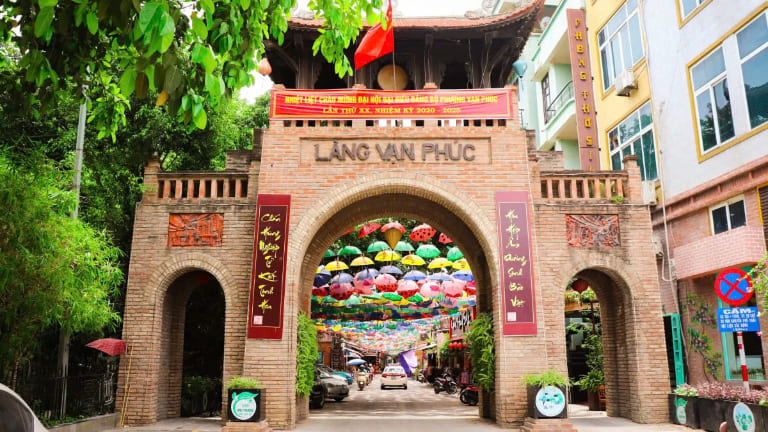
The History and Legacy of Van Phuc Silk
Early Beginnings and Craftsmanship
Beginning in the ninth century, Van Phuc’s silk-making legacy become well-known throughout Vietnam as a center of exquisite, luxury silk. Some of the softest, most robust silk in the nation is created by the artists in the area. Because generations of families have perfected their methods, this town serves as a living repository of Vietnam’s cultural legacy.
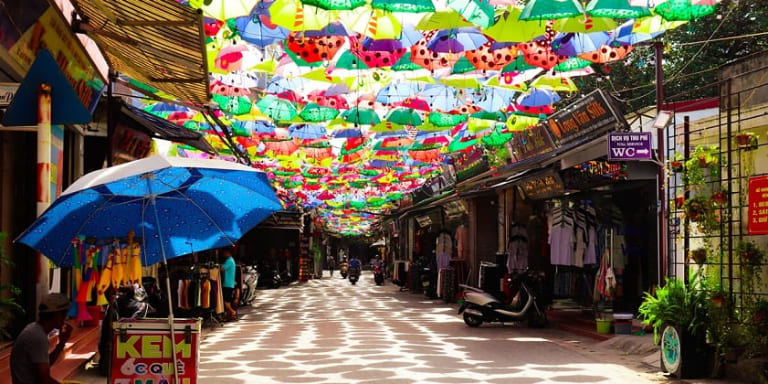
Silk Weaving Techniques Passed Down Through Generations
Van Phuc is unique in that it preserves difficult to recreate historic silk-making methods used elsewhere. Many artists learn the trade from their parents and grandparents; these techniques call for years of expertise and perseverance. The reason Van Phuc’s silk is so valued is in part her flawless continuity.
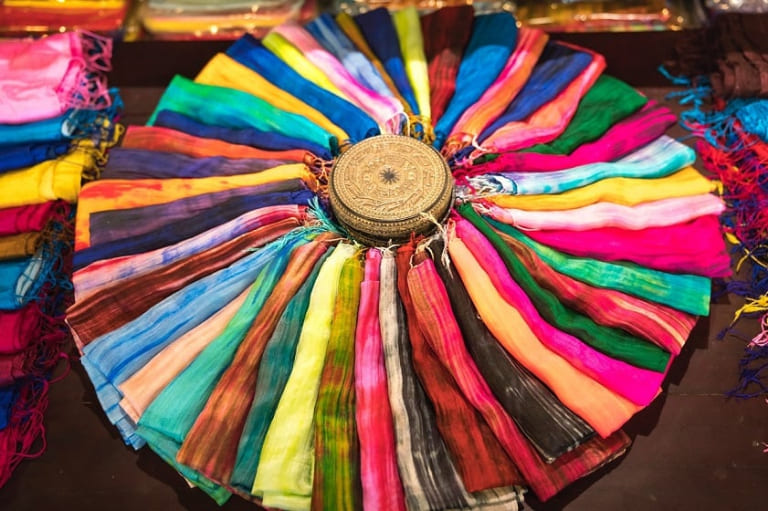
What Makes Van Phuc Silk Unique?
Traditional Patterns and Designs
Van Phuc’s silk is prized for its distinct village-specific traditional motifs and gorgeous patterns. Deeply ingrained in Vietnamese culture, each design features themes of mythology, spirituality, and environment that frequently mirror parts of the country. Among the most often used designs are the dragon, standing for wealth and power, and the phoenix, which stands for virtue and grace.
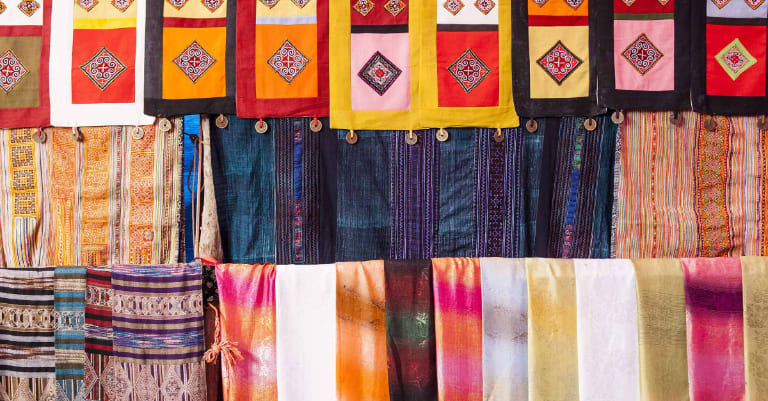
These patterns reflect the local cultural legacy, therefore elevating every piece of Van Phuc silk from mere cloth to a work of art. To appeal to both traditional and contemporary tastes, van phuc artists also design employing floral and geometric patterns that give the silk an ageless charm.
The Art of Silk Weaving
In Van Phuc, silk weaving is a laborious craft requiring artistry, patience, and talent. To painstakingly weave the silk strands into complex designs, artists utilize traditional looms—often run-through by hand. The complexity of the design will determine whether days or even weeks are needed to finish this weaving process.
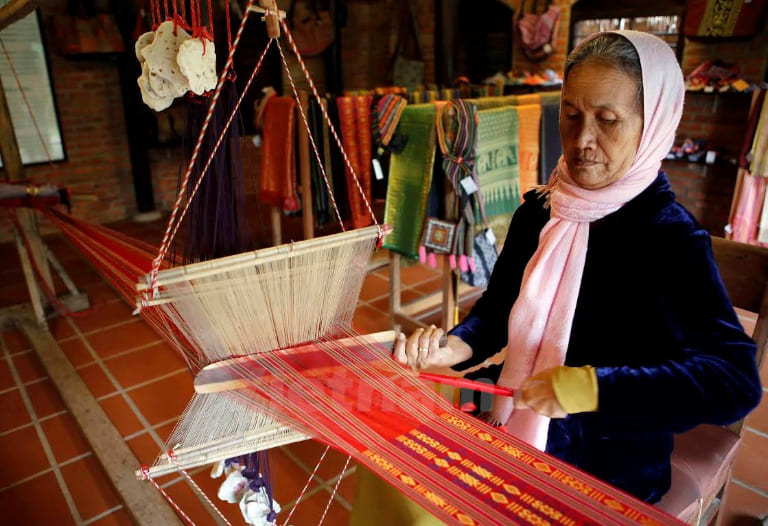
Superior Quality and Durability
Van Phuc silk stands out on the silk market because of its smoothness and durability—qualities that define it. Here the silk goes through painstaking techniques like dying, weaving, and finishing to guarantee its lifetime. Because the threads are carefully spun, the silk resists wear and tear and Van Phuc silk can keep its beauty for years.
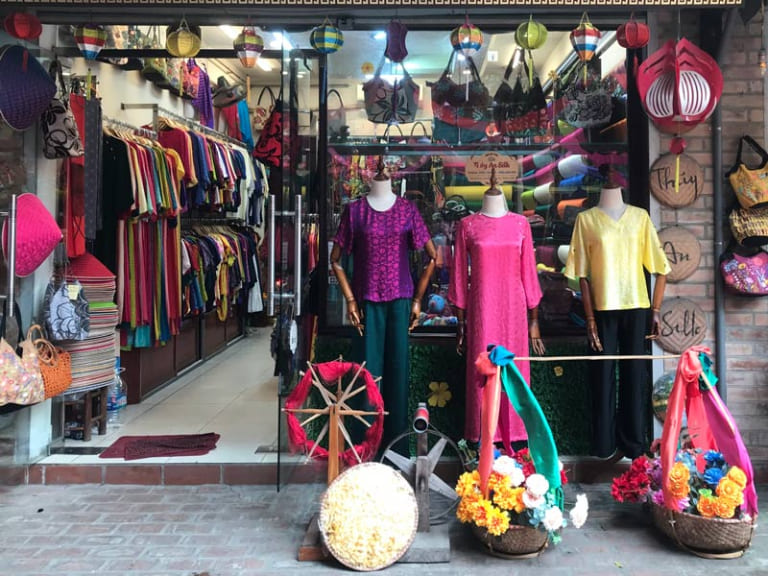
Use of Natural Dyes
Van Phuc silk also stands out for using natural dyes. Many of the village’s workshops give environmental-friendly dying techniques first priority, employing beautiful colors created by plant-based dyes. Common colors that complement the earthy, organic appeal of silk are rich indigos, warm reds, and soft pastels.
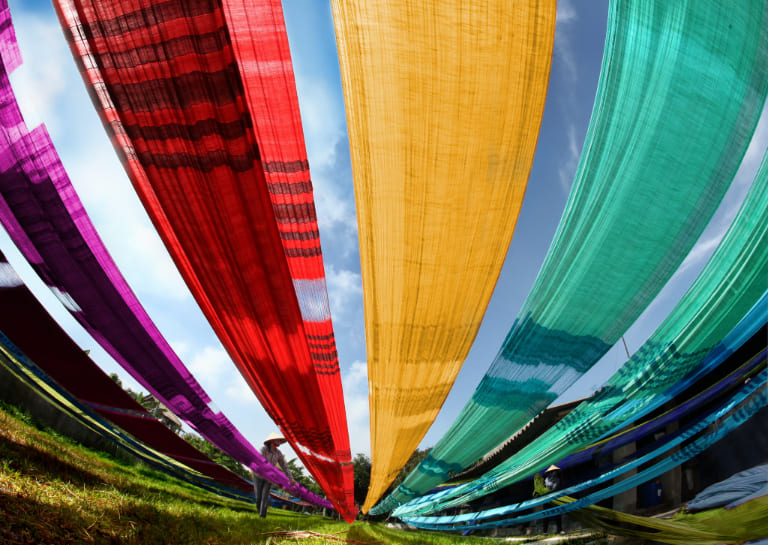
Generations of Craftsmanship
Generation after generation has passed on the Van Phuc weaving techniques, and every family adds something special to the process. Apart from pride, this long-standing custom is fundamental in explaining the unique quality of Van Phuc silk. The patterns of the silk clearly reflect the unique style of every family, allowing buyers to acquire a piece of workmanship and history.
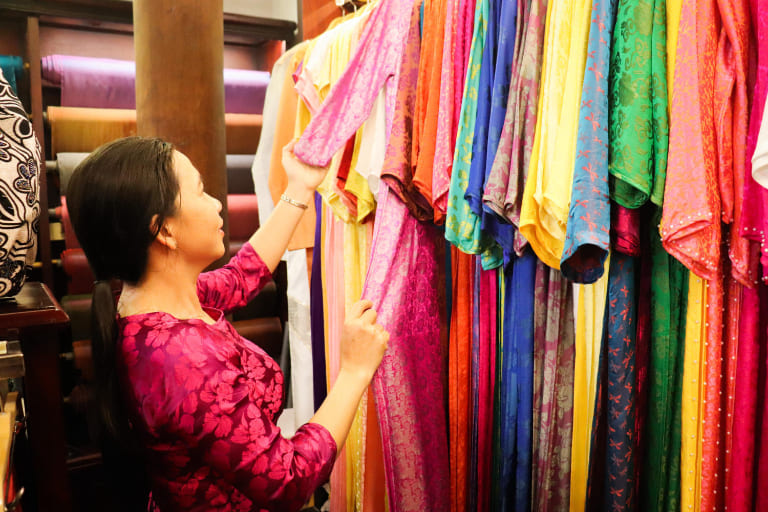
Exploring Van Phuc Silk Village
Travelers interested in traditional crafts will find Van Phuc Silk Village to be an enchanted location since it presents a special mix of historical richness and cultural inquiry. As you go about the hamlet, you will come across artists working, picturesque alleyways dotted with vivid silk stores, and an environment that whisks you back in time.
Attractions in the Van Phuc Silk Village
Van Phuc is a cultural legacy place bursting with traditional appeal, not only a silk manufacturing hub. The village features little, meandering streets studded with family-run silk stores and charming residences. The hamlet is dotted with temples and old pagodas, calm locations for contemplation.
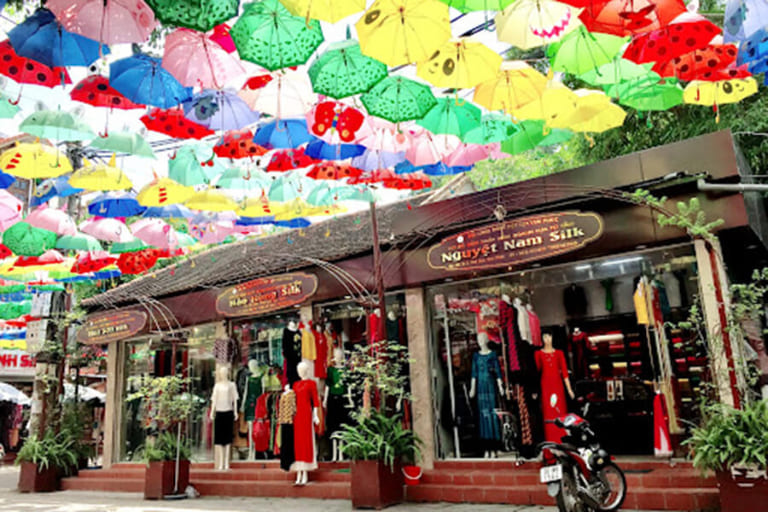
Usually humming with activity, the main street presents a variety of stores offering vibrant scarves, ao dai (traditional gowns), handbags, and decorative accents—all created from Van Phuc’s trademark silk. Along with a lovely market scene featuring handcrafted items, artwork, and mementos reflecting local culture, this street also shows.
Loom Weaving Demonstrations
It is hypnotic to see the weavers working at their looms. Artisans display their looms at the front of many stores so that guests may watch each stage as silk threads are spun into cloth. The methodical rhythm of the looms and the weavers’ deft motions provide a window into the ability needed for this ancient trade.
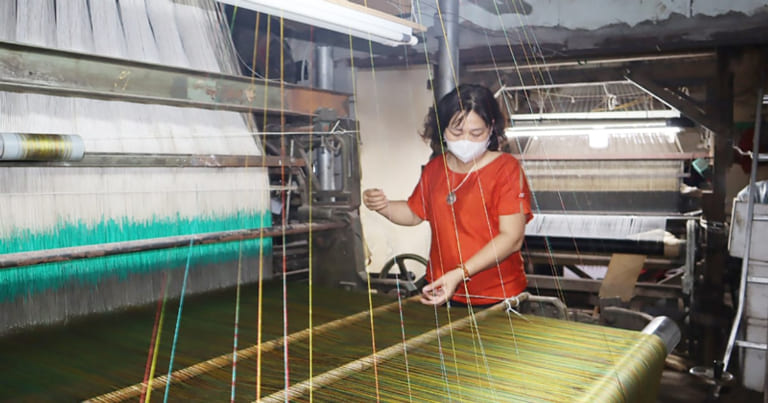
Workshops and Hands-On Experiences
Some Van Phuc locations provide seminars where guests may try their hand at weaving for those looking for a more interactive experience. Under the direction of an expert craftsman, you can pick fundamental skills and even make a little silk fabric item to keep for home. These seminars give guests a practical knowledge of the weaving technique, therefore enabling them to value the commitment and patience needed to create excellent silk.
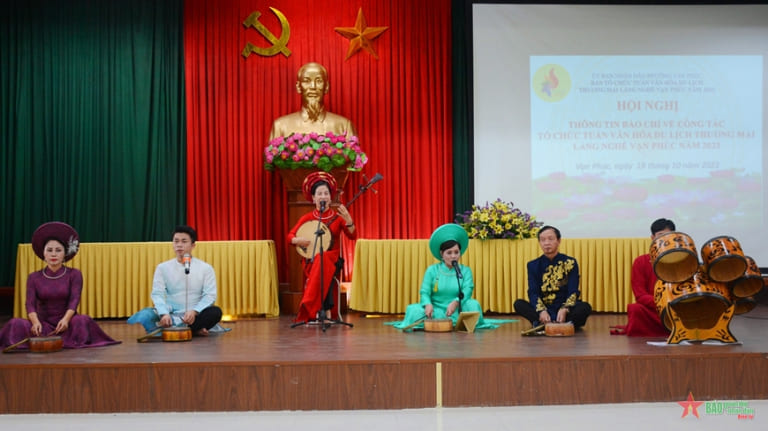
>>> Explore: Perfume Pagoda in Hanoi: Ultimate Guide to Vietnam’s Spiritual Haven
Shopping for Silk in Van Phuc
Finding Authentic Vietnamese Silk
One of the best locations in Vietnam to directly buy real silk goods straight from the artists that manufacture them is Van Phuc Silk Village. From traditional ao dai (Vietnamese long dresses) and scarves to elaborate tapestries and accessories, the stores and booths surrounding the main street of the town provide a vivid range of silk items.
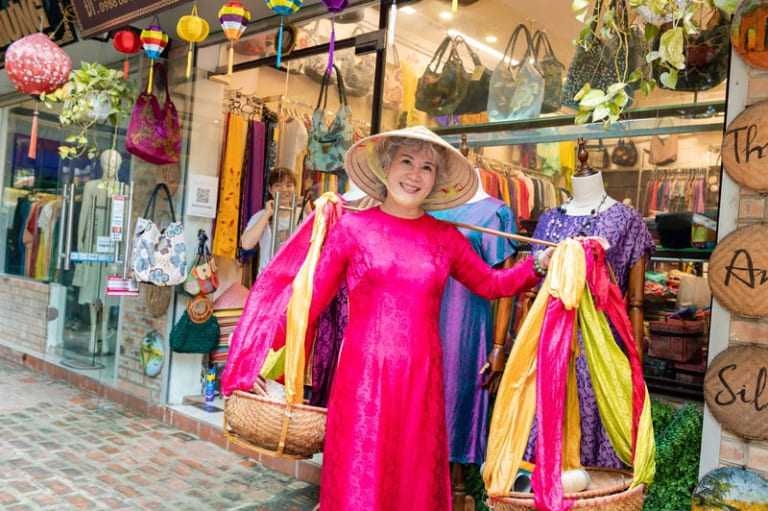
Purchasing from Van Phuc guarantees quality and helps the local craft directly since every piece bears the expert touch of a local craftsmen. Unlike knock-off goods, Van Phuc silk has a rich texture and a faintly reflected gloss. Reflecting millennia of workmanship, authentic Van Phuc silk is delicate, cool to the touch, and durable.
Types of Silk Products Available
Visitors can pick from a large range of goods highlighting the adaptability of Van Phuc silk. You would find:
- Silk Scarves and Shawls: From sophisticated neutrals to vivid, detailed prints, silk scarves and shawls feature a range of designs and hues. Made to durable and lightweight yet warm, Van Phuc silk scarves are perfect as presents or mementos.
- Ao Dai (Traditional Vietnamese Dresses): Made from Van Phuc silk, Ao Dai (traditional Vietnamese Dresses) are much sought after for their beauty and cultural value. Many of the local stores provide custom fitting so guests may have an ao dai created to exactly fit them.
- Silk Fabrics: For those wishing to design their own clothing, Van Phuc provides premium silk materials by meter. These materials let consumers include a bit of Vietnamese background into their own creations.
- Home Decor Items: Any home would benefit from the opulence of tapestries, table runners, and pillow coverings fashioned from Van Phuc silk. Every item has classic Vietnamese designs that reflect the core of the rich creative legacy of the nation.
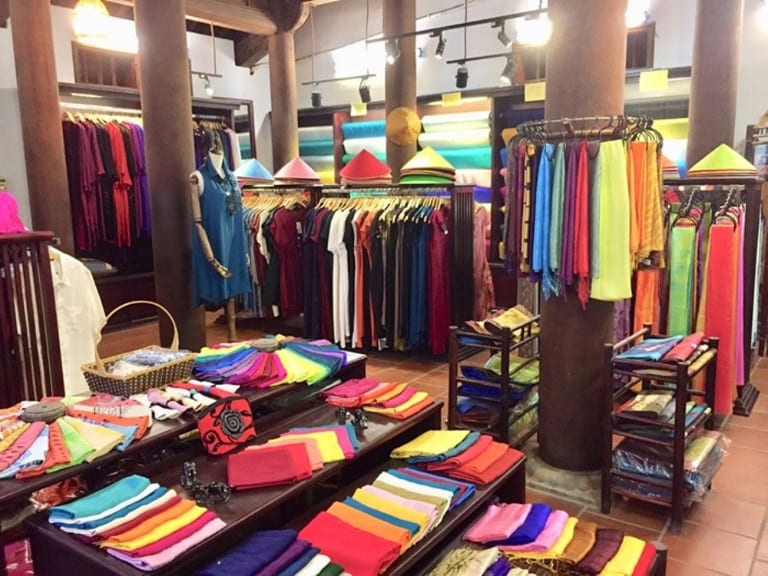
Tips for Buying Silk in Van Phuc Silk Village
These shopping guidelines will help you to guarantee you are buying real Van Phuc silk:
- Check the Texture and Feel: Authentic silk has a delicate, smooth texture and a natural sheen; fake textiles may seem stiff or unduly shiny. Furthermore cool to the touch, real silk will assist set it apart from replicas.
- Ask About the Weaving Process: Don’t hesitate to find out from storekeepers the methods of dyeing and weaving. The authenticity of your purchase is enhanced by most merchants’ pride in their work and their ability to relate specifics on the production techniques.
- Consider the Price: Though Van Phuc silk is reasonably priced, premium silk will have a fair price based on its workmanship. Extremely low prices should be avoided since these could point to counterfeit silk.
- Look for Traditional Patterns: Often woven rather than printed, Van Phuc silk is renowned for its unique patterns—phoenixes, dragons, and floral designs—which are spun into the fabric. Real Van Phuc silk is distinguished by this small characteristic, which also accentuates its value and beauty.
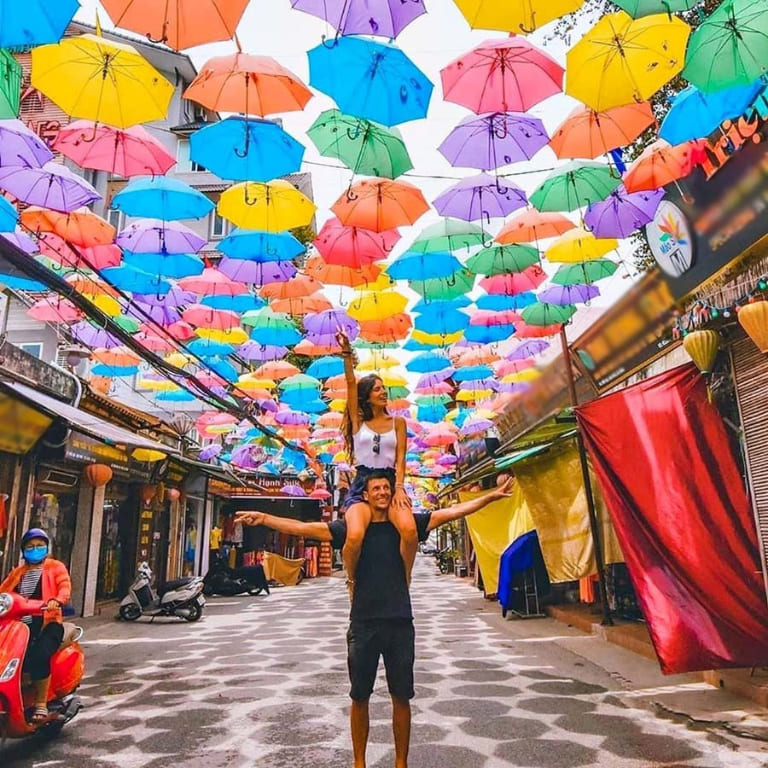
Visiting Van Phuc Silk Village – Practical Information
How To Get There?
Nestled beside the calm Nhue River in Van Phuc Ward, Ha Dong District, Hanoi, Van Phuc Silk Village is also known as Ha Dong Silk Village and roughly 10 kilometers from the city center. Use a picturesque motorbike route across Nguyen Trai – Le Van Luong – To Huu to get to the village; it’s a simple and well-marked road. The village entrance is free; motorbike or car parking costs just a little fee.
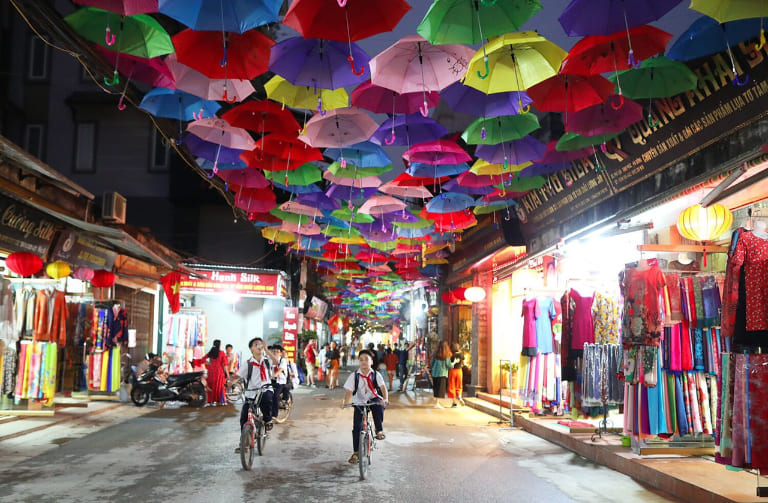
In addition, to enhance your experience, you can choose guided tours like Hanoi Motorbike Tours. They will provide a comprehensive overview of Van Phuc Silk Village’s history and significance
The Best Time to Visit Van Phuc Silk Village
Year-round visitors are much welcomed at Van Phuc Silk Village. Still, the best time to visit the hamlet is late winter or early spring when the temperature is pleasant. November really stands out since this is Van Phuc’s Cultural Week. The village changes with colorful decorations throughout this festive season, including a lovely “umbrella road” and lantern-lit entrance that replicate the impression of a little Hoi An in Hanoi.
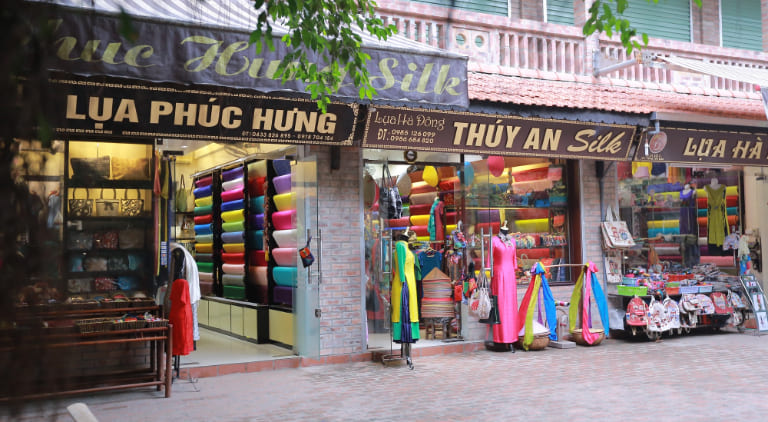
Van Phuc Silk Village is still proud keeper of Vietnam’s silk legacy. It is a must-see location because of its dedication to maintaining traditional methods and the appeal of its calm rural setting. Van Phuc provides an experience that perfectly embodies Vietnam’s creative energy whether your interests are in silk buying, learning about the weaving technique, or fully absorbing the village life.
Related Posts:
- Discover the Timeless Charm of Duong Lam Ancient Village in Hanoi
- The One Pillar Pagoda: Discover Vietnam’s Cultural Jewel
- The Bat Trang Pottery Village: A Must-visit Destination in Hanoi
- Co Loa Citadel in Hanoi: A Glimpse into Vietnam’s Ancient Past
- Hanoi Ceramic Mosaic Mural: A Masterpiece of Art & Culture












Be the first to comment!